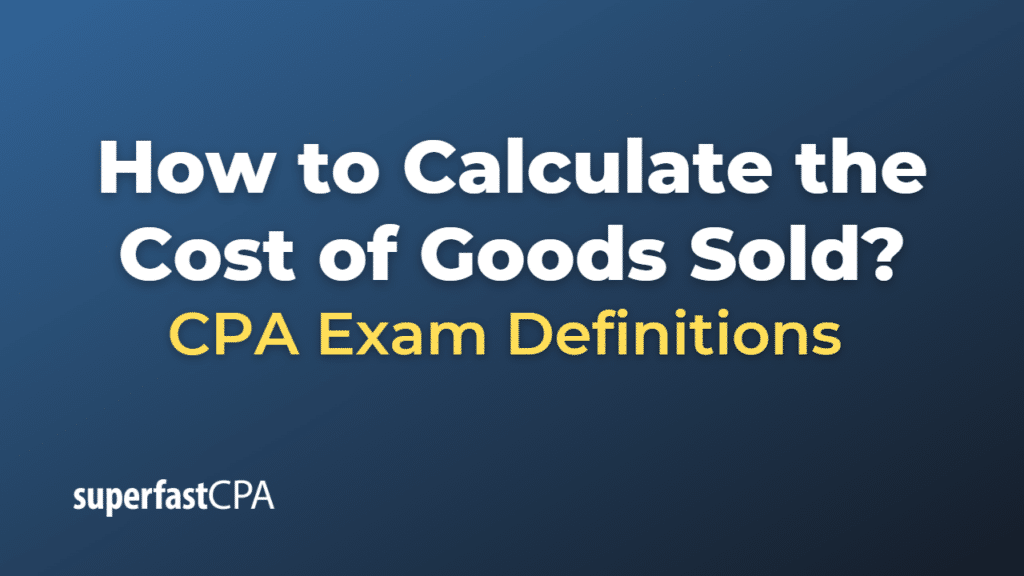How to Calculate the Cost of Goods Sold
The Cost of Goods Sold (COGS) is the direct costs attributable to the production of the goods sold by a company. This includes the cost of the materials used in creating the goods along with direct labor costs used to produce the good. It excludes indirect expenses such as distribution costs and sales force costs.
The formula for COGS, assuming there is no change in work-in-progress inventory, is:
COGS = Opening Inventory + Purchases During the Period – Ending Inventory
Let’s break down the formula:
- Opening Inventory: This is the cost of the inventory of goods available for sale at the beginning of the accounting period.
- Purchases During the Period: These are all the costs of purchasing raw materials or product for resale during the accounting period. These should be added to the opening inventory.
- Ending Inventory: This is the cost of the inventory of goods still available for sale at the end of the accounting period. It is subtracted from the sum of opening inventory and purchases.
This formula gives the cost of the goods that the company sold during the accounting period, whether they were bought during the current period or were leftover from previous periods.
Note: The cost of goods sold can be more complicated for companies using different inventory valuation methods (FIFO, LIFO, etc.) or for manufacturing companies that have to consider work-in-progress and finished goods inventories. The formula above is simplified and best suited for a retail or wholesale company that purchases finished goods for resale.
Example of How to Calculate the Cost of Goods Sold
Let’s say you own a business that sells handmade crafts. Here’s the inventory and purchasing data for a given year:
- Opening inventory at the start of the year: $10,000
- Purchases made during the year: $30,000
- Closing inventory at the end of the year: $7,000
To calculate the Cost of Goods Sold (COGS), we will use the formula:
COGS = Opening Inventory + Purchases During the Period – Ending Inventory
So, in this case:
COGS = $10,000 (Opening Inventory) + $30,000 (Purchases) – $7,000 (Ending Inventory)
= $40,000 – $7,000
= $33,000
So, the cost of goods sold during the year in this example would be $33,000. This amount represents the cost directly associated with creating the crafts that the business sold during the year.













